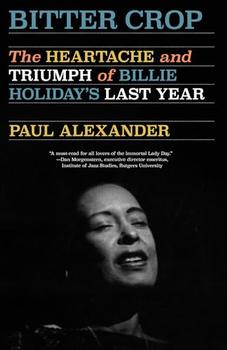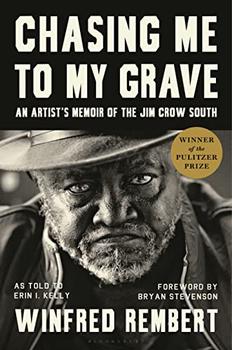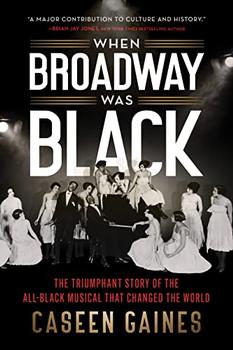Summary | Excerpt | Reviews | Beyond the book | Read-Alikes | Genres & Themes | Author Bio

The Heartache and Triumph of Billie Holiday's Last Year
by Paul AlexanderIn 1958, Billie Holiday began work on an ambitious album called Lady in Satin. Accompanied by a full orchestra for the first time in her career and nervous, she was often late to rehearsal, drunk, or both. However, no amount of alcohol could make her voice blend seamlessly with the orchestra. After the album's release, critics unleashed their disappointment in striking fashion even as the public loved what she delivered. The Kansas City Star downgraded her voice, saying it "isn't what it used to be." The Los Angeles Times was more direct in their analysis, calling the album "sad," while the San Francisco Chronicle wrote that Lady in Satin was "a [disturbing] experience for those who heard her when she was really singing."
Journalist Paul Alexander explains what the critics missed. "All the suffering, all the heartache was reflected in the damaged, tortured voice captured on the album." In his biography Bitter Crop: The Heartache and Triumph of Billie Holiday's Last Year, he characterizes the aged musician as vocally weak yet popular and revered, loved by many, but not, perhaps, by herself.
Billie Holiday was an important figure in my house. She was the first black singer to be popularized in the era of Jim Crow, but more importantly, she owned a deep racial conscience. She once said, "I'm proud of those two strikes [being a woman and black]. I'm proud of being a Negro." Despite her popularity, she was not spared the indignities of Jim Crow prejudice; anti-black racism amplified her scars and triggered her vulnerabilities. Nevertheless, her influence was so significant Frank Sinatra valorized her accomplishments: "[She] still remains the greatest single musical influence on me." Lady Day, as she was first called by saxophonist Lester Young (almost immediately thereafter everyone in the industry referred to her as "Lady"), was celebrated by audiences whenever she took the stage in her floor-length glittery evening gown, belting out tunes in her haunting voice.
She was born Eleanora Fagan in Philadelphia in 1915. Her father, Clarence Holiday, was an immature adolescent who abandoned his responsibility, so Eleanora was raised by her mother Sadie, a housekeeper. At the age of ten, Eleanora was raped by a man named Wilbert Rich, her neighbor. Sadie interrupted the assault and called the police but Rich only served three months in jail.
To honor her father and her favorite actress Billie Dove (the stage name of Lillian Bohny), Eleanora changed her name to Billie Holiday. Her first singing gig was at a cabaret jazz club called Pod's and Jerry's. A columnist noticed her right away. "She was then about fifteen. She was dressed in a skirt and sweater, and she was barefoot. People gave her quarters and change to sing requests." Her first recording session was with Benny Goodman, who had never recorded with a Negro musician. She remembered, "I got there and I was afraid to sing in the mic because I never saw a microphone before…I was scared to death of it."
Café Society opened in 1938 in Greenwich Village and hired Billie as its headliner. Thrilled, she had no idea when she began performing there that she was under surveillance by the FBI because of her popularity and communist ties, which led to her being pursued and arrested on drug charges. She later wrote, "[M]y life has been made miserable. These people have dogged my footsteps from New York to San Francisco and all the territory in between."
She was appropriately fearful of being arrested again and coped by seeking the company of immoral and violent loser men, who didn't spare an opportunity to demean her, steal her money, or enable her drug use. What was tragic was not the male toxicity she was exposed to in itself but the desperate circumstances behind her allowance of it. She wanted to be a mother but adoption agencies turned her down because of her criminal record. The men she chose therefore became an ideation of her maternal fantasies. She took their abuse. She abused herself. Rinse. Repeat. The children were never born.
Billie's relevance returns annually whenever "Strange Fruit" (see Beyond the Book) is either sung or discussed during Black History Month. Nearly seventy years after her death, this points to her longevity in pop culture circles, a rarity for a jazz singer. "Strange Fruit" is her best-selling song and Alexander devotes an entire chapter to its rich history. His stirring prose evokes a camera following Billie all over the world. Billie at the Blue Note. Billie at the Monterey Jazz Festival. Billie at the Chatterbox Musical Bar.
"No matter what the motherfuckers do to you, never let them see you cry" is one of my favorite Billie quotes resurrected in this biography because of the perception it creates, that Billie Holiday was confident — and she was at times. But her insecurities were pronounced. Male abandonment beginning with her father, whose name she carried, triggered self-loathing that drugs, alcohol, and violent men only exaggerated. The aggressive and continued harassment of government agencies until her death affected her. She once told Parisian friends she was going to die between two cops, a sort of joke. But not a joke.
Here's something to understand about Alexander's biography of Billie: He isn't in awe of her, and therefore treats her like one would the non-famous if they earned the right to a public biography. As Oscar Wilde said, "be yourself, everyone else is already taken," and Billie is herself in Alexander's biography. But here's where my mind drifted. I thought of the Japanese art of kintsugi, in which broken pottery is repaired with a layer of gold dust. If only that could apply to the human soul, to someone like Billie. Painting gold over her deep scars as relief. But that would be reductive and miss the essence of Lady Day.
Her signature look was a white gardenia tucked behind her ear and it made a memorable statement for nearly three decades. When her voice was gone, the flower disappeared too. As if she knew the gardenia no longer fit her life. A more appropriate choice at this point would have been a yarrow: A cluster of small white blooms that survives in neglect, that is resilient and a beautiful color.
![]() This review was originally published in The BookBrowse Review in April 2024, and has been updated for the
April 2025 edition.
Click here to go to this issue.
This review was originally published in The BookBrowse Review in April 2024, and has been updated for the
April 2025 edition.
Click here to go to this issue.

If you liked Bitter Crop, try these:

by Winfred Rembert
Published 2023
Winfred Rembert grew up in a family of Georgia field laborers and joined the Civil Rights Movement as a teenager. He was arrested after fleeing a demonstration, survived a near-lynching at the hands of law enforcement, and spent seven years on chain gangs.

by Caseen Gaines
Published 2023
The triumphant story of how an all-Black Broadway cast and crew changed musical theatre—and the world—forever.
Your guide toexceptional books
BookBrowse seeks out and recommends the best in contemporary fiction and nonfiction—books that not only engage and entertain but also deepen our understanding of ourselves and the world around us.